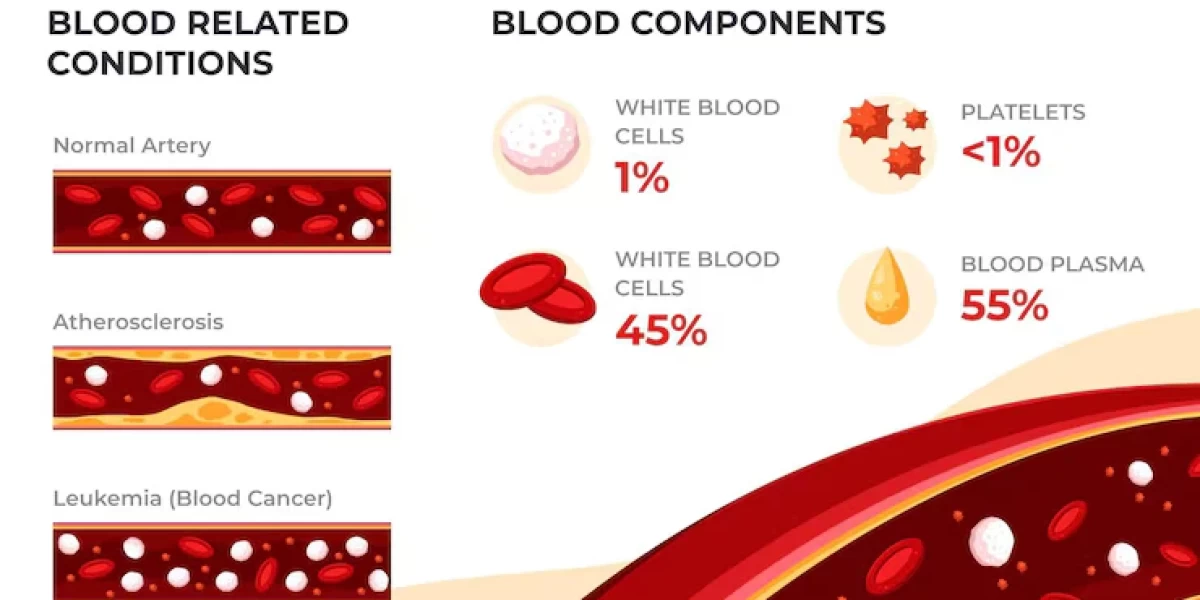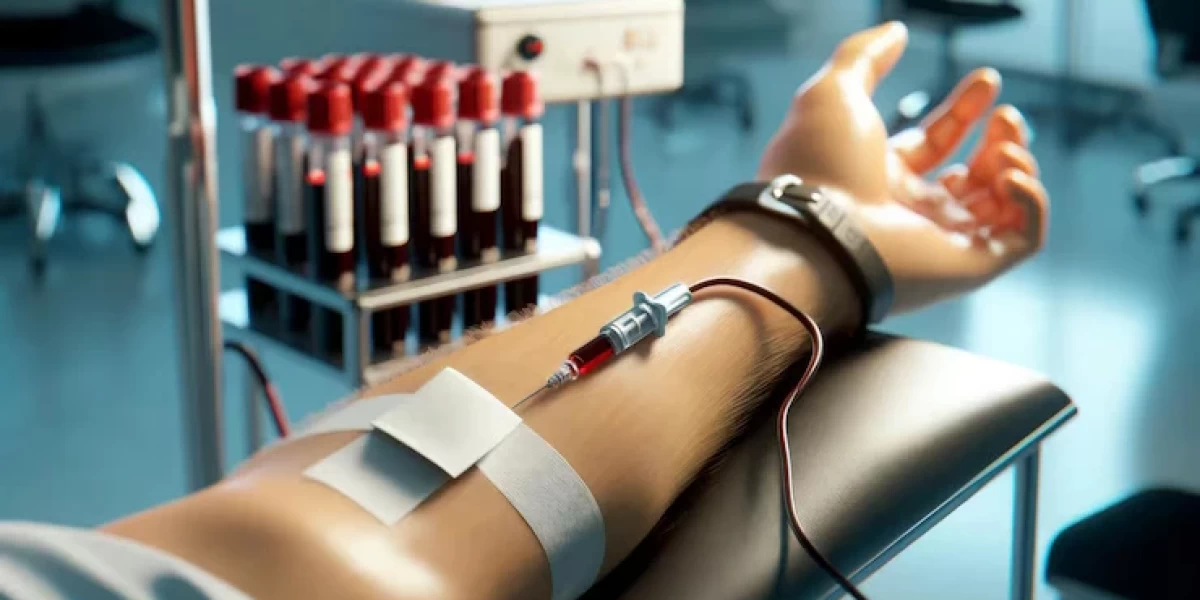1. Introduction
Hematuria, the presence of blood in urine, is a symptom that often triggers concern but is not a disease by itself. Instead, it serves as a crucial indicator of an underlying health issue, ranging from mild to serious. Blood in the urine might be seen without any aid (gross hematuria) or only noticed under a microscope (microscopic hematuria). Regardless of how it presents, it’s vital to recognize that hematuria is not something to be ignored.
This symptom can arise from various conditions affecting the urinary tract, kidneys, or bladder. While some causes may be benign, others could signal more serious health conditions that require immediate medical intervention. Understanding the potential causes, associated symptoms, and available treatments is essential for individuals experiencing this unsettling symptom. Early detection and proper diagnosis can often make the difference in preventing more severe complications.
The importance of awareness around hematuria cannot be overstated. Recognizing the warning signs and seeking timely medical advice can help manage the condition effectively, reducing the risk of long-term damage. In the following sections, we will explore the symptoms, causes, and treatment options available for hematuria, equipping readers with the knowledge needed to navigate this condition confidently.
2. Symptoms That Accompany Blood in Your Urine
Hematuria itself is a clear sign that something might be wrong with the urinary system, but it's often accompanied by other symptoms that can provide clues about the underlying issue. The symptoms associated with hematuria can vary significantly, depending on the root cause. Some people may experience minimal discomfort, while others might face more severe and alarming symptoms. Understanding these accompanying signs can help in identifying whether the condition is urgent.
One common symptom is pain during urination, known medically as dysuria. This sharp or burning sensation can indicate that the blood in your urine is linked to a urinary tract infection (UTI) or inflammation in the bladder. Alongside this pain, some individuals may notice frequent urination, which is often a sign that the bladder or urethra is irritated, making it difficult to retain urine for long periods. In more severe cases, the need to urinate may become almost constant, with little to no urine being passed.
Abdominal pain or discomfort is another symptom that may accompany hematuria, particularly when the kidneys are involved. If blood in the urine stems from kidney stones or an infection in the upper urinary tract, pain may radiate from the sides or lower back, and can range from dull aches to sharp, excruciating pain, depending on the severity of the condition. For individuals with more serious causes of hematuria, such as tumors or kidney disease, this abdominal pain may become chronic and progressively worsen over time.
It's also possible to experience cloudy or foul-smelling urine, which is often a sign of infection, and in some cases, blood clots may be passed in the urine. Additionally, hematuria might be accompanied by fever, nausea, and vomiting—symptoms often seen in infections or kidney stones. These can further help medical professionals pinpoint the exact cause of hematuria, emphasizing the importance of reporting any associated symptoms when consulting a healthcare provider.
3. Causes of Blood in Your Urine (Hematuria)

There are numerous reasons why blood might appear in your urine, and while some causes are relatively harmless, others can be more severe and require urgent medical attention. Understanding the common causes of hematuria is crucial for determining how serious the condition might be.
One of the most frequent causes of blood in the urine is a urinary tract infection (UTI). UTIs occur when bacteria enter the urinary system, causing inflammation and irritation of the bladder or urethra. This can result in blood leaking into the urine. Symptoms often include pain during urination, frequent urges to urinate, and cloudy or foul-smelling urine, making UTIs a fairly easy cause of hematuria to identify.
Kidney stones are another common culprit. These small, hard deposits of minerals and salts form in the kidneys and can cause extreme pain when passing through the urinary tract. As the stones move, they can scratch and damage the lining of the urinary system, leading to blood in the urine. Hematuria caused by kidney stones is often accompanied by intense pain in the side, back, or abdomen, as well as nausea and vomiting.
In some cases, trauma to the urinary system can also lead to hematuria. This could be the result of an injury to the kidneys or bladder, such as a fall or accident. Athletes, particularly those involved in contact sports, are sometimes more at risk for experiencing hematuria due to repeated impacts on the body.
More serious causes of hematuria include kidney infections, bladder infections, or even cancer of the kidneys, bladder, or prostate. These conditions can cause blood to leak into the urine due to damage or inflammation of the urinary system's tissues. Tumors can sometimes block the flow of urine, leading to further irritation and bleeding.
Another significant cause is benign prostatic hyperplasia (BPH), a condition that affects older men and involves the enlargement of the prostate gland. As the prostate grows, it can press against the urethra, causing irritation and blood in the urine.
It's essential to seek medical attention if hematuria occurs, as early detection and diagnosis are critical to addressing the underlying cause. In some cases, further testing, such as imaging scans or cystoscopy, may be necessary to determine the exact reason for the bleeding. Once the cause is identified, appropriate treatment can be provided, whether that involves antibiotics for infections, pain relief for kidney stones, or more advanced interventions for conditions like cancer.
4. What Causes Small Blood Clots in Urine?
The appearance of small blood clots in urine, known as hematuria, can be alarming and warrants immediate medical attention. Hematuria can result from various conditions, some benign and others more serious. Blood clots in the urine are a sign that bleeding has occurred somewhere within the urinary tract, including the kidneys, bladder, ureters, or urethra. Understanding the specific causes of this symptom is essential for determining the appropriate course of treatment.
One of the primary causes of small blood clots in urine is kidney disease. Conditions such as glomerulonephritis, an inflammation of the kidney’s filtering units (glomeruli), can lead to the presence of blood in the urine. Polycystic kidney disease, a genetic condition that causes the growth of cysts in the kidneys, may also result in hematuria. These conditions interfere with the kidneys' ability to filter blood properly, allowing blood cells to leak into the urine.
Another potential cause is urinary tract infections (UTIs). In severe cases, infections can irritate the lining of the bladder or kidneys, leading to bleeding. This irritation may cause the formation of small blood clots that are visible in the urine. In addition to infections, kidney stones are another common culprit. When kidney stones move through the urinary tract, they can cause significant pain and may scratch or damage the delicate tissues, resulting in bleeding.
Blood clotting disorders also contribute to the presence of clots in the urine. Conditions such as hemophilia or thrombocytopenia, where the blood does not clot properly, can increase the likelihood of bleeding in various parts of the body, including the urinary system. Additionally, people who take anticoagulant medications like warfarin or heparin may experience hematuria as a side effect, as these drugs thin the blood and make clotting more difficult. In such cases, adjusting the dosage or switching medications may be necessary under a healthcare provider’s supervision.
Furthermore, cancer of the kidneys, bladder, or prostate may also manifest as blood clots in urine. These cancers can cause internal bleeding, leading to the presence of clots. Early detection and treatment are critical, as these cancers can be aggressive and life-threatening if left untreated.
Finally, physical trauma to the urinary tract or kidneys can cause blood clots to appear in urine. Injuries from accidents, sports, or even surgery can damage the urinary organs and lead to bleeding.
5. Why Is There Blood in My Child’s Urine?
Seeing blood in your child’s urine can be distressing, and it’s a symptom that should prompt immediate consultation with a pediatrician. Known as pediatric hematuria, blood in a child’s urine can be caused by several factors, many of which differ from those seen in adults. While some causes may be benign and easily treatable, others could indicate more serious health issues. Understanding the potential causes of blood in a child’s urine is crucial for timely diagnosis and treatment.
One of the most common causes of blood in a child’s urine is urinary tract infections (UTIs). UTIs can occur in children of all ages and are often accompanied by symptoms such as pain during urination, frequent urination, and fever. The infection causes inflammation in the urinary tract, which can lead to small amounts of blood being passed in the urine. Prompt treatment with antibiotics is typically effective in resolving the infection and preventing further complications.
Another potential cause of pediatric hematuria is congenital abnormalities in the urinary system. Children may be born with structural abnormalities in their kidneys, ureters, or bladder that can lead to blood in the urine. For example, hydronephrosis, a condition where the kidney swells due to a buildup of urine, can cause blood to appear. Similarly, vesicoureteral reflux (VUR), a condition where urine flows backward from the bladder into the kidneys, can cause irritation and bleeding in the urinary tract.
In some cases, strenuous physical activity can lead to temporary hematuria in children. Known as exercise-induced hematuria, this condition can occur after intense physical exertion and usually resolves on its own without treatment. However, it is essential to rule out more serious causes, such as trauma to the kidneys or bladder.
Kidney stones, though less common in children than adults, can also cause blood in the urine. Children who experience sharp pain in the back or side, along with blood in their urine, should be evaluated for kidney stones, especially if they have a family history of the condition.
Glomerulonephritis, an inflammation of the tiny filters in the kidneys, is another condition that can cause blood in a child’s urine. This condition can develop after a strep throat infection or other immune system issues. In severe cases, it can lead to kidney damage if left untreated.
It is essential for parents to seek prompt medical attention if they notice blood in their child’s urine. A pediatrician will perform a thorough evaluation to determine the underlying cause and recommend the appropriate treatment. Early diagnosis is crucial to prevent potential complications and ensure the child’s long-term health.
6. Diagnosing the Cause of Blood in Urine
Diagnosing the cause of hematuria (blood in urine) involves a comprehensive approach that includes patient history, physical examination, and a series of diagnostic tests. The goal is to determine the source of the bleeding and identify any underlying conditions that may require treatment. Since hematuria can result from a wide range of causes, from infections to cancers, a thorough evaluation is essential.
The first step in diagnosing hematuria is a urine analysis (urinalysis). This test checks for the presence of blood in the urine and examines other elements, such as protein, white blood cells, and bacteria, that can provide clues about the cause. For example, the presence of white blood cells may indicate a urinary tract infection, while high levels of protein could suggest kidney disease.
In some cases, a urine culture may be ordered to determine if a bacterial infection is present. This test helps identify the specific bacteria causing the infection, allowing for targeted antibiotic treatment.
If no infection is detected, further imaging studies are typically needed to visualize the urinary tract and identify any structural abnormalities. Ultrasound is often the first imaging test used, as it is non-invasive and provides a clear picture of the kidneys, bladder, and ureters. Ultrasound can help detect kidney stones, tumors, or blockages in the urinary tract that may be causing hematuria.
For a more detailed examination, a CT scan or MRI may be performed. These imaging studies provide cross-sectional images of the urinary system, allowing doctors to identify smaller stones, tumors, or abnormalities that might not be visible on an ultrasound.
In cases where the cause of hematuria remains unclear, a cystoscopy may be necessary. This procedure involves inserting a thin, flexible tube with a camera into the bladder to visually inspect the bladder and urethra for any signs of cancer, inflammation, or other issues.
Once the diagnostic process is complete, the results will guide the treatment plan. For example, if a urinary tract infection is the cause, antibiotics will be prescribed. If kidney stones are detected, treatment may involve medication, dietary changes, or procedures to remove the stones. In more severe cases, such as bladder or kidney cancer, surgery or other treatments may be necessary.
7. Treating What’s Causing Blood in Your Urine
Hematuria, or the presence of blood in the urine, can be alarming, but the treatment largely depends on its underlying cause. Since hematuria can result from various conditions ranging from infections to more severe diseases, understanding the cause is crucial in determining the appropriate treatment plan.
For instance, urinary tract infections (UTIs) are one of the most common causes of hematuria. When bacteria invade the urinary tract, it can lead to inflammation and bleeding in the bladder or kidneys, causing blood to appear in the urine. In these cases, treatment typically involves a course of antibiotics to clear the infection. Commonly prescribed antibiotics may include amoxicillin, ciprofloxacin, or nitrofurantoin, depending on the severity of the infection and the patient’s medical history. Clearing the infection should stop the blood in the urine, and a follow-up urine test is often recommended to ensure the infection is gone.
Kidney stones are another common cause of hematuria. When stones pass through the urinary tract, they can irritate the lining of the bladder or urethra, leading to visible blood in the urine. For kidney stones, treatment depends on the size and type of the stone. Smaller stones may pass naturally with the help of increased fluid intake and pain management. In some cases, lifestyle changes such as adjusting your diet to reduce the intake of oxalate-rich foods (e.g., spinach, nuts) and maintaining hydration can prevent future stone formation. For larger stones, medical interventions like extracorporeal shock wave lithotripsy (ESWL) may be required to break the stones into smaller pieces, making them easier to pass. In more severe cases, surgical intervention might be necessary, especially if the stones are too large to pass naturally or are causing severe complications like blockages in the urinary tract.
If hematuria is caused by more serious conditions, such as bladder or kidney cancer, treatment may involve surgery, chemotherapy, or radiation therapy. Early-stage cancers might be treated with minimally invasive procedures like transurethral resection (TURBT) for bladder cancer or partial nephrectomy for kidney cancer. However, advanced cases could require more aggressive treatments, including complete removal of the bladder or kidney, followed by systemic treatments like chemotherapy.
In all cases, the key to treating hematuria effectively lies in timely diagnosis. Consulting a healthcare provider as soon as blood in the urine is noticed can prevent the progression of potentially serious health issues.

8. Risks Associated with Blood in Urine
Ignoring blood in your urine, or hematuria, can come with significant health risks. While it may not always indicate a severe problem, it can be a symptom of a serious underlying condition. Left untreated, the consequences of hematuria can range from chronic kidney damage to life-threatening diseases like cancer.
One of the primary risks associated with untreated hematuria is the progression of kidney disease. If hematuria is a result of conditions like glomerulonephritis (inflammation of the kidney's filtering units), failure to address it promptly can lead to chronic kidney disease (CKD). CKD is a long-term condition where the kidneys lose their ability to filter waste from the blood effectively. Over time, this can progress to end-stage renal disease (ESRD), which may require dialysis or even a kidney transplant to sustain life.
Another critical risk is that hematuria might be a warning sign of bladder or kidney cancer. When detected early, these cancers are more treatable and manageable, with higher survival rates. However, if left unchecked, the cancer could advance to more aggressive stages, potentially spreading to other parts of the body (metastasis), making treatment much more difficult and drastically reducing life expectancy.
In cases where hematuria is due to urinary tract infections (UTIs), failing to seek treatment can lead to the infection spreading to the kidneys, a condition known as pyelonephritis. This serious infection can cause permanent kidney damage, sepsis, or even death if not treated quickly. Similarly, untreated kidney stones can lead to severe urinary blockages. If a stone blocks the flow of urine, it can cause swelling in the kidneys (hydronephrosis) and increase the risk of infections or kidney failure.
Another overlooked risk of untreated hematuria is the potential for anemia. Chronic blood loss through the urine, even in small amounts, can lead to a deficiency in red blood cells. This can result in fatigue, weakness, and a weakened immune system, making the body more susceptible to infections.
In summary, ignoring blood in your urine is never a wise decision. While not all cases are indicative of serious health issues, timely medical intervention can prevent complications and, in some cases, save lives.
9. Preventive Measures and Lifestyle Changes
While some causes of hematuria, such as genetic predispositions or certain diseases, may not be entirely preventable, there are several preventive measures and lifestyle changes that can reduce the risk of developing conditions that lead to blood in the urine.
One of the most important lifestyle adjustments is to stay hydrated. Drinking plenty of water helps flush out the urinary system, preventing the buildup of minerals that can lead to kidney stones. Aim for at least eight glasses of water a day, and increase this intake if you live in a hot climate or engage in strenuous physical activity.
A healthy diet also plays a crucial role in preventing hematuria, especially when it comes to reducing the risk of kidney stones. Foods high in oxalates, such as spinach, rhubarb, and nuts, can contribute to the formation of certain types of kidney stones. By moderating your intake of these foods and increasing your consumption of calcium-rich foods, you can reduce the likelihood of stone formation. Additionally, reducing salt intake can prevent excess calcium from accumulating in the kidneys, further lowering the risk of stones.
Regular exercise is another key factor in maintaining urinary health. Physical activity promotes better circulation and helps regulate body weight, which can lower the risk of diabetes and high blood pressure—two conditions that can damage the kidneys and lead to hematuria. Furthermore, avoiding tobacco and limiting alcohol consumption can decrease the risk of bladder and kidney cancers, which are potential causes of blood in the urine.
It's also essential to undergo regular medical check-ups, especially if you're at a higher risk of urinary or kidney problems. Routine urine tests can detect early signs of kidney disease, infections, or other conditions that may cause hematuria, allowing for prompt intervention.
Lastly, for those prone to urinary tract infections (UTIs), simple hygiene practices can significantly reduce the risk. Drinking plenty of fluids, urinating after sexual activity, and wiping from front to back for women can all help prevent the bacteria that cause UTIs from entering the urinary tract.
By adopting these preventive measures and making conscious lifestyle changes, you can promote better urinary health and reduce the risk of experiencing blood in your urine.
10. Conclusion
Blood in the urine, or hematuria, is a serious symptom that should never be ignored. Whether caused by infections, kidney stones, or more severe conditions like cancer, hematuria requires timely diagnosis and treatment to prevent further health complications. The treatment options vary depending on the underlying cause, ranging from antibiotics for infections to surgical interventions for serious diseases. Failing to address hematuria can lead to severe risks, including chronic kidney disease, cancer progression, and even life-threatening conditions.
Preventive measures such as staying hydrated, maintaining a healthy diet, regular exercise, and routine medical check-ups are essential for reducing the risk of developing conditions that can cause hematuria. By being proactive about urinary health and seeking medical advice at the first sign of blood in your urine, you can ensure early detection and treatment of any underlying health issues.
Frequently Asked Questions(FAQ's)
- What is the best treatment for hematuria?
- Treatment for hematuria depends on the underlying cause. It might involve antibiotics for infections, medications to shrink an enlarged prostate, or treatments like sound waves to break up kidney or bladder stones. Sometimes, no treatment is required, and the condition clears up on its own.
- What is the cause of hematuria and symptoms?
- Hematuria can be caused by infections (like urinary tract infections or kidney infections), kidney stones, vigorous exercise, trauma to the urinary tract, or underlying conditions like kidney disease. Symptoms include pink, red, or brown urine, and sometimes pain or discomfort.
- What is the best home remedy for blood in urine?
- Home remedies include staying hydrated, increasing vitamin C intake, drinking unsweetened cranberry juice, taking probiotics, and practicing good hygiene. However, it's important to consult a doctor to determine the exact cause and appropriate treatment.
- Can drinking water stop blood in urine?
- Drinking water can help prevent dehydration, which can reduce the risk of hematuria. However, it's not a guaranteed solution, and seeing a doctor is essential to address the underlying cause.
- How do you remove blood from urine?
- Removing blood from urine involves treating the underlying cause. This might include antibiotics for infections, medications for prostate issues, or procedures to remove kidney or bladder stones. Regular follow-up with a healthcare provider is important to ensure the blood is gone.
- What should I eat if I have blood in my urine?
- A diet low in salt and rich in fruits and vegetables can help. Avoiding foods high in oxalates (like spinach, nuts, and tea) can also be beneficial if kidney stones are the cause.
- Which fruit is best for urine problems?
- Cranberries are often recommended for urinary tract health due to their ability to prevent bacteria from adhering to the urinary tract walls.
- What is the best drink for a urine infection?
- Unsweetened cranberry juice and water are good choices. Probiotics and herbal teas (like chamomile or peppermint) can also support urinary health.
- Is blood in the urine treatable?
- Yes, blood in the urine is treatable. The treatment depends on the cause, and many cases resolve with appropriate medical care.
*Image credits- freepik*
Important Notice:
The information provided on “health life ai” is intended for informational purposes only. While we have made efforts to ensure the accuracy and authenticity of the information presented, we cannot guarantee its absolute correctness or completeness. Before applying any of the strategies or tips, please consult a professional medical adviser.













